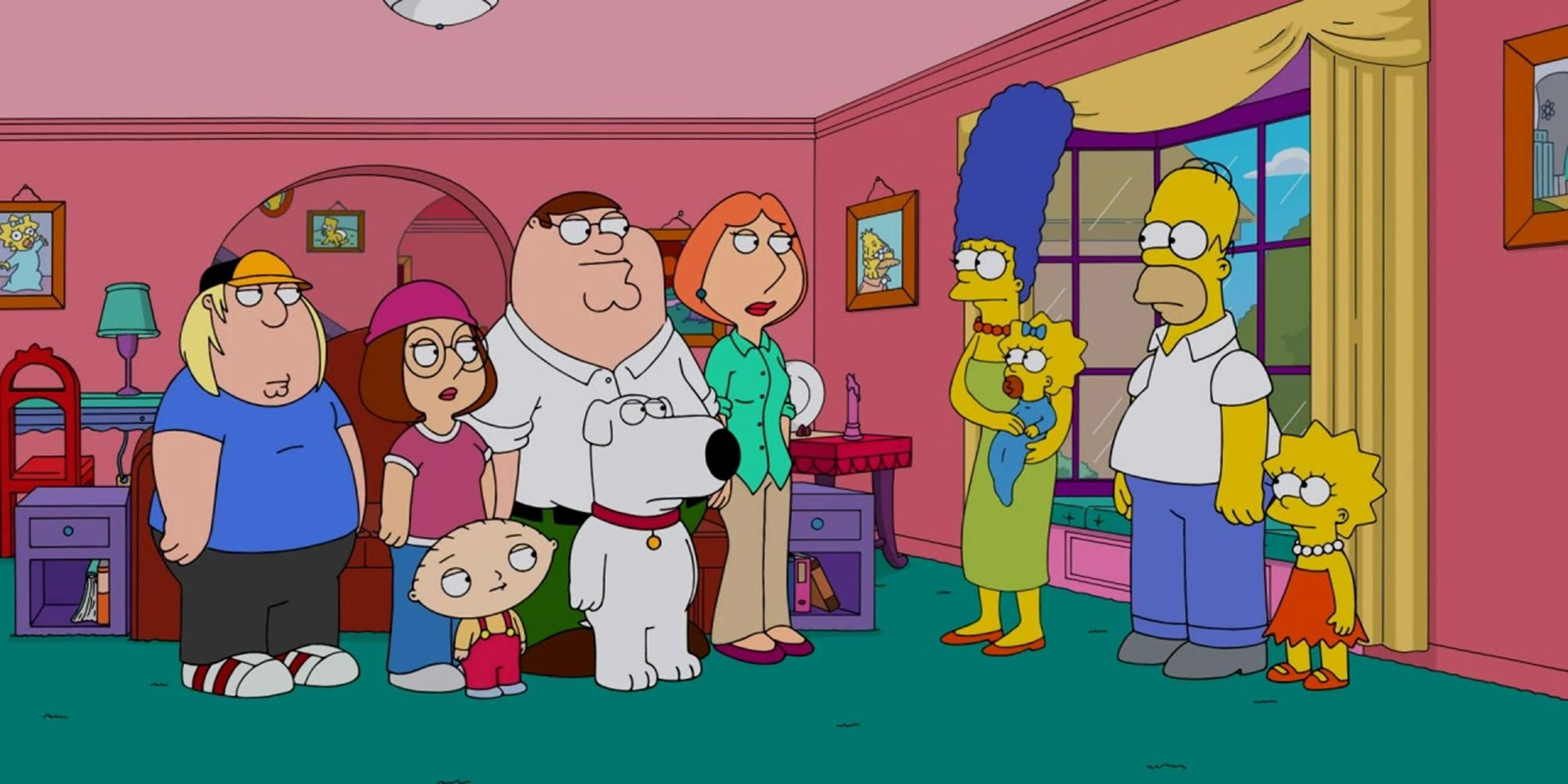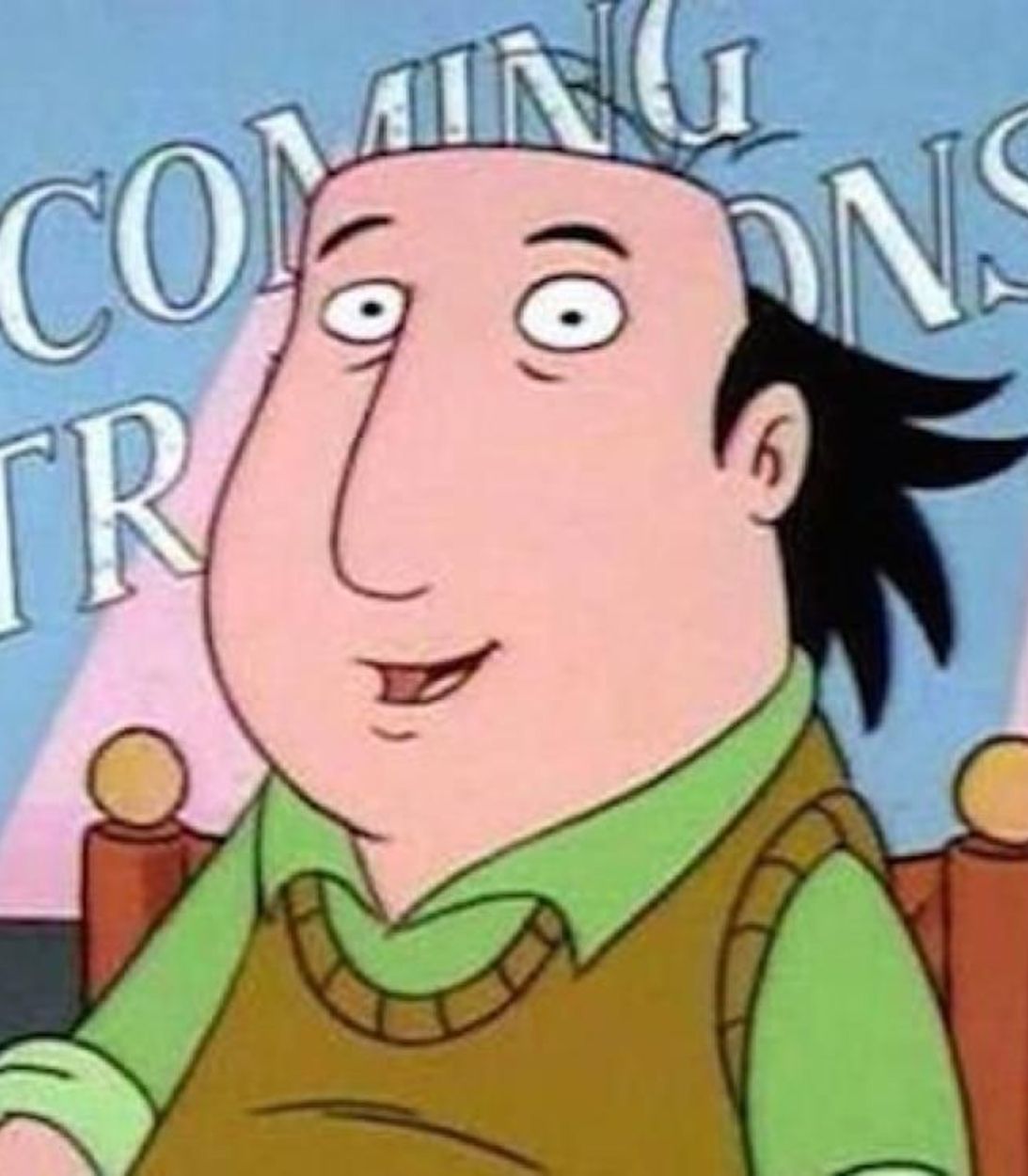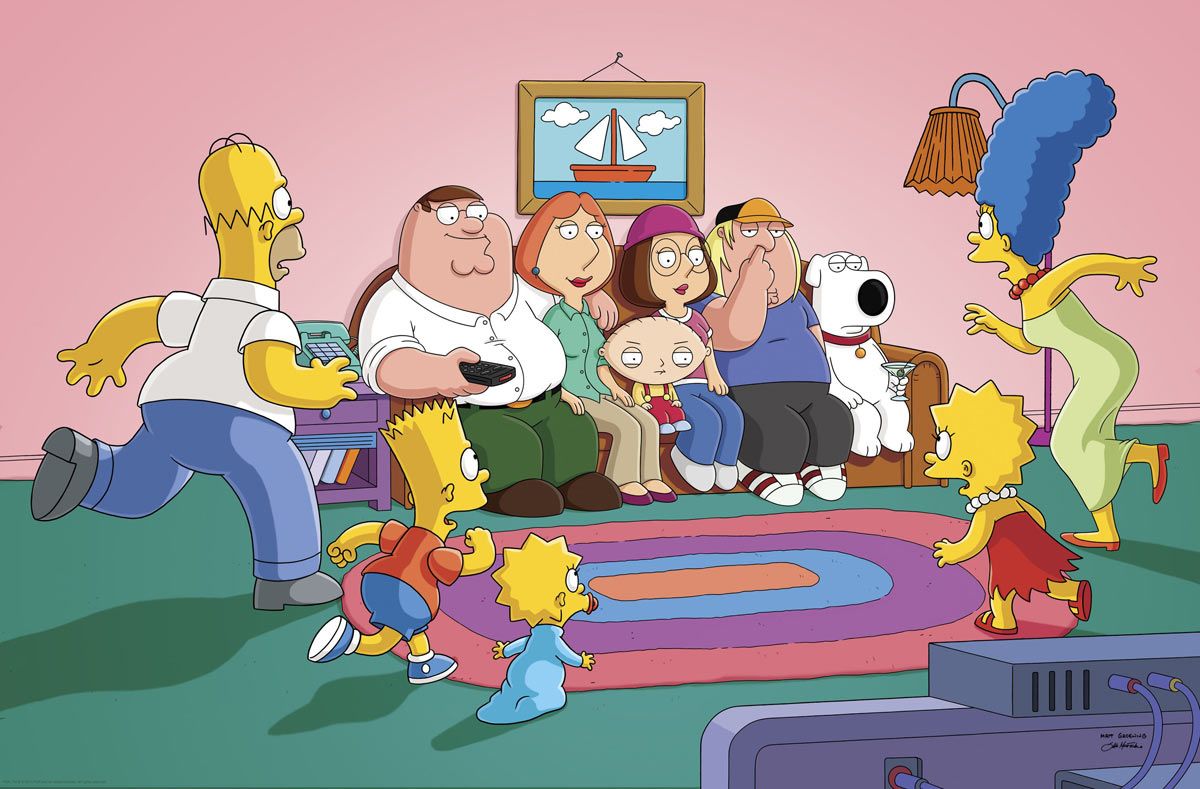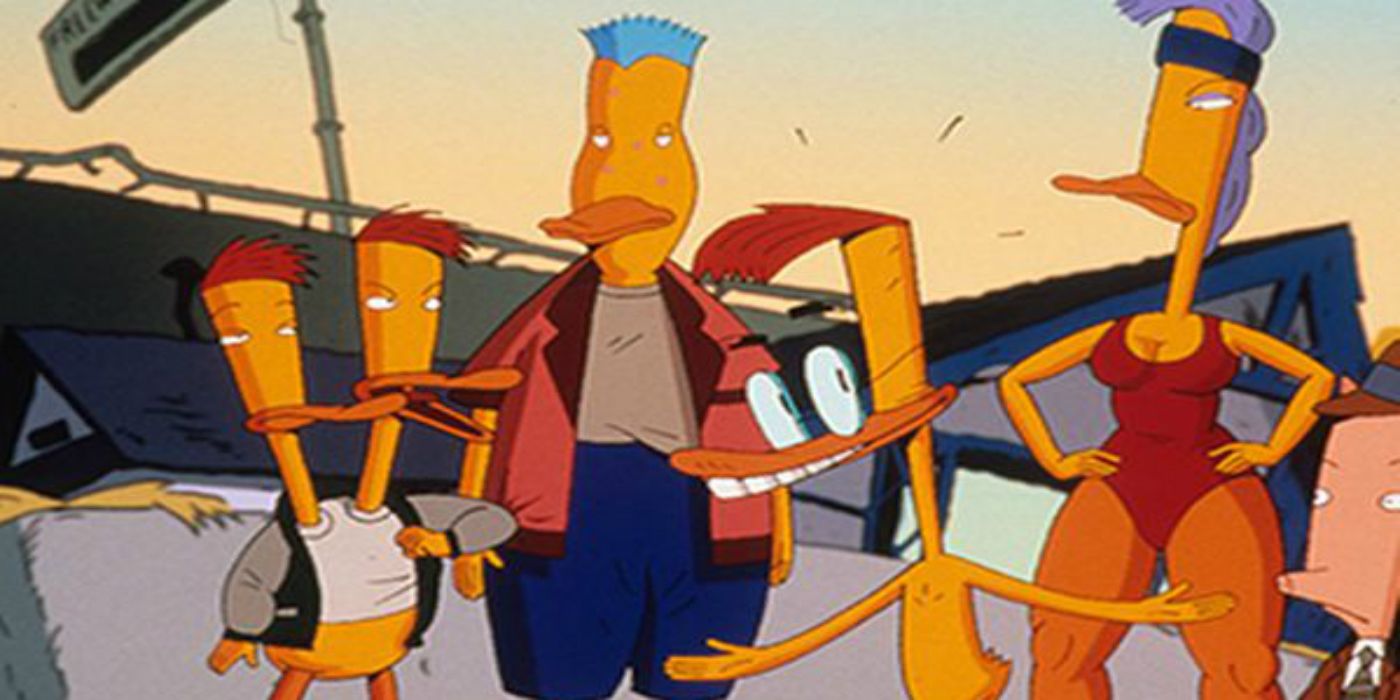It's difficult to a remember a time before The Simpsons, or even an era before fans claimed its golden days were over. The classic animated sitcom, created by Matt Groening who developed the show with Sam Simon and James L. Brooks, was initially animated by Klasky Csupo, a studio that later found great success on Nickelodeon shows like Rugrats. Produced by Gracie Studios, The Simpsons was a breakout hit for the Fox Broadcasting Company, essentially defining the network in its early days.
And although the show was merchandised in every way conceivable, from Burger King toys to animated spots for Butterfinger candy bars, Groening maintained a careful eye on how the characters were used. When Fox's youth-centered programming block, Fox Kids, clipped scenes from previous Simpsons episodes to promote its Saturday morning lineup, Groening used his influence to ensure this could never happen again.
Two early Simpsons showrunners, Al Jean and Mike Reiss, were tapped by James L. Brooks to develop a new series for his production company, Gracie Films. The result was The Critic, initially conceived as a live-action sitcom for comedian Jon Lovitz, who turned down the job due to other commitments. When it was reimagined as an animated series, giving Lovitz a more flexible schedule for the voiceover work, he signed on.
The Critic detailed the life of a middle-aged film critic from New York named Jay Sherman. His televised review show parodied not only popular films of the era, but also syndicated movie review programs like Siskel and Ebert. It was a break from The Simpsons, with a wealthy, single protagonist who lived in an urban environment. And, for its initial network ABC, not the hit they were expecting. In 1994, The Critic was cancelled after 13 episodes before being revived by Fox.
To promote the series, which directly followed The Simpsons, Gracie Films and Fox conceived a "shameless plug" crossover episode. This Simpsons episode eventually aired as Season 6's "A Star Is Burns." The premise had Jay Sherman arriving in Springfield to judge the town's film festival. It marked the first time the Simpsons family interacted with another cartoon character, and the debut of the famous Simpsons bit where Mr. Burns is told an angry, booing crowd is shouting "Boo-urns" instead.
The episode wasn't without controversy, however. Several writers complained the premise violated the show's integrity, and Simpsons creator Matt Groening even had his name removed from the episode's credits. After news of Groening's displeasure leaked to the press, James L. Brooks bluntly told The Los Angeles Times, "I am furious with Matt, he's been going to everybody who wears a suit at Fox and complaining about this. When he voiced his concerns about how to draw The Critic into the Simpsons' universe he was right and we agreed to his changes. Certainly he's allowed his opinion, but airing this publicly in the press is going too far. He is a gifted, adorable, cuddly ingrate. But his behavior right now is rotten."
Following the internal strife caused by the event, The Simpsons avoided any high-profile animated crossovers until "The Simpsons Guy" aired on Fox on September 28, 2014. This was the thirteenth season premiere of Family Guy, Fox's other long-running, family-oriented family sitcom, created by Seth MacFarlane, which was once dismissed by critics as a bad Simpsons clone.
The Critic's co-creator Mike Reiss spoke of these crossovers in his memoir, Springfield Confidential: Jokes, Secrets, and Outright Lies from a Lifetime Writing for The Simpsons. He recalls animosity over the Critic crossover remained so intense, the initial recording of that episode's DVD commentary (done years after the fact) had to be re-recorded because the discussion became "so bilious." (For what it's worth, Groening isn't featured on the released commentary.) Reiss, however, has a different perspective on the Family Guy crossover. He explains that after an initial internal resistance to Family Guy, the series' writing staffs began to blend over the years, paving the way for what was once unthinkable -- a Simpsons/Family Guy crossover.
Reiss recalls in his book:
When Matt Groening and Jim Brooks agreed to this, I imagined they'd oversee every aspect of the episode. Instead, amazingly, they told Family Guy, "Good luck with the crossover. We'll watch it when it airs." In the end, everyone from both camps loved it...except maybe Seth MacFarlane. The running theme of the episode was that Family Guy stole everything from The Simpsons. Apparently, at some point Seth told his staff "Guys--enough."
But there's another Simpsons crossover that time has forgotten, and it's so obscure that it wasn't even promoted at the time of its airing.
Duckman was another animated sitcom commissioned after the Simpsons' success, airing on the USA Network from 1994 to 1997. The show was created and developed by animator Everett Peck, and produced by Klasky Csupo. Duckman starred a recently widowed anthropomorphic duck, struggling to raise his family and maintain a detective agency with his partner, a pig named Cornfed. Jason Alexander voiced Duckman during the height of Seinfeld's popularity, so the show debuted to decent publicity (though USA barely promoted Duckman after its first season). It was also Klasky Csupo's second adult-oriented television series after animating the first three seasons of The Simpsons.
A recurring Duckman gag was to recast Duckman and Cornfed as 1940s-era movie stars, evoking the buddy pictures of Hollywood's golden age. "Duckman and Cornfed in Haunted Society Plumbers" is the fourteenth episode of the fourth season, recasting the leads as an Abbott and Costello-inspired plumbing company that specializes in high-society gigs. Their first job takes them to a society gathering in a haunted mansion. While goofing around, Duckman learns the cursed "Cheron Stone" (this was 1997) is missing. The duo try to recover the diamond before the hostess discovers it's gone. After the diamond's theft is revealed, its curse is revived, trapping the society party inside.
Homaging the shameless celebrity cameos of the star-packed buddy pictures, the ghost responsible for stealing the stone is eventually revealed to be... Homer Simpson. It seems the entire affair was Homer's "perfect crime" -- all a set-up for him to steal a box of doughnuts. And this isn't a background gag. Dan Castellaneta, the longtime voice of Homer, actually guest-starred to provide the voice. Homer also appears perfectly on-model, thanks to Klasky Csupo's history animating the character. They even capture the unique look of a box of doughnuts from The Simpsons.
The episode closes with Homer looking directly at the audience and asking, "What the hell are you staring at?" -- Duckman's intentionally non-commercial catchphrase from the series. The episode's closing credits feature music that blends the two shows' themes, played over alternate line readings from Castellaneta as Homer, trying to get the catchphrase right. There's also a special thank you to Matt Groening and The Simpsons, along with Gracie Films and Fox Broadcasting.
Duckman was in its final days, on a cable network not invested in promoting the show, so most viewers were unaware of Homer's appearance. Duckman never had much of a life in reruns, even though more than enough episodes exist for a syndication run. Over the years, Duckman has only descended further into anonymity (though there is a cult fanbase), making the cameo increasingly obscure.
"Haunted Society Plumbers" does have a small place in history, however. The episode was nominated for an Emmy in the category of "Outstanding Animated Program (For Programming One Hour Or Less)" in 1997. It lost to The Simpsons.




